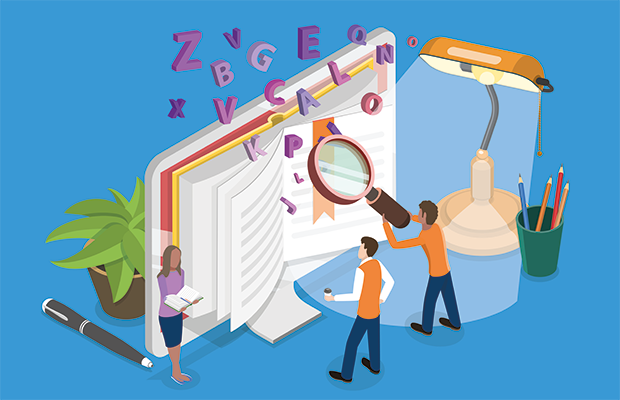This discussion is now closed.
Check out other Related discussions
- A level english language
- English literature ao2
- English literature alevel revision
- a level english literature
- English literature technique terminology
- STRUGGLING with English Language and literature Alevel
- Grow your Grades blog 23/24!
- Whats the best way to revise for IGCSE english language B from complete scratch?
- Feeling worthless
- A level literature edexcel
- Edexcel Paper 1 English Literature question 3a
- Edexcel Paper 1 English Literature Question 3a
- Does GCSE Latin really help with other subjects?
- Uni is Confusing
- GCSE Exam Discussions 2024
- GCSE's in a month - How to get all 9's?
- A-level English Study Group
- EPQ (film)
- Literature Review
- Does GCSE Latin help?
English literature terminology!
Scroll to see replies
bathos - Anti-climax
hyperbole - Exaggerated styles of language.
intertextuality - The situation in which one text deliberately echoes another.
intratextuality - When a text will refer to itself through a system of echo and connection.
prolepsis - when there is a 'flash forward' in the text but it may also be used where foreshadowing takes place.
hyperbole - Exaggerated styles of language.
intertextuality - The situation in which one text deliberately echoes another.
intratextuality - When a text will refer to itself through a system of echo and connection.
prolepsis - when there is a 'flash forward' in the text but it may also be used where foreshadowing takes place.
HexagonalBolts
If a word is filled with 'f' sounds you say that it has fricatives
If a word has 's' sounds you say that it has sibilance
If a word has strong 'b', 'p' or 'd' sounds then they are plosives
If an aspect of a piece of writing attempts to emulate something else you can say that it is 'mimetic' of something, for example if a poem attempts to make use of a beat that is mimetic of a horse trotting
there are loooads I can't think of them all right now
If a word has 's' sounds you say that it has sibilance
If a word has strong 'b', 'p' or 'd' sounds then they are plosives
If an aspect of a piece of writing attempts to emulate something else you can say that it is 'mimetic' of something, for example if a poem attempts to make use of a beat that is mimetic of a horse trotting
there are loooads I can't think of them all right now
Wow! Somebody mentioned sibilance to me a couple of weeks ago and I had no idea what it was. Thanks!
I honestly wouldn't just throw these words in without fully understanding them and being able to use them in the right context.
MrRead
Leitmotiv - recurring theme or idea.
Is there a difference between a leitmotif and just a motif?
Hendiadys
Abdulla
Wow! Somebody mentioned sibilance to me a couple of weeks ago and I had no idea what it was. Thanks!
They're incredibly useful, especially for poems which are usually stuffed full of them. Although they're quite simple to spot they create quite a profound evocation of emotion through both the word itself and the sound and the pronunciation of the word, which, if you describe in detail, will give you lotssss of marks

some words we were told to include where possible:
didactic language
diction
hubris
antithesis
connotation
hyperbole
inversion
litotes
oxymoron
paradox
parallelism
pun
rhetoric
cacophony
euphony
onomatopoeia
dramatic irony
deus ex machina
hamartia
catastrophe
blocking
convention
aside
soliloque
monologue
syntax
tripling
pronouns
allusion
cliche
ambiguity
motif
pace
pathos
pprotagonist
satire
phonology
plosives
fricatives
sibilance
they won't all be relevant, but the sound like useful words!
didactic language
diction
hubris
antithesis
connotation
hyperbole
inversion
litotes
oxymoron
paradox
parallelism
pun
rhetoric
cacophony
euphony
onomatopoeia
dramatic irony
deus ex machina
hamartia
catastrophe
blocking
convention
aside
soliloque
monologue
syntax
tripling
pronouns
allusion
cliche
ambiguity
motif
pace
pathos
pprotagonist
satire
phonology
plosives
fricatives
sibilance
they won't all be relevant, but the sound like useful words!
polysyllabic.
end-stopping 

So, you'd say "this poem is pathos", what? How would you use it in context? See what I mean, please don't just throw these words in OP.
'Somantic field' is a nice one - I think it refers to the variety of words that a certain word makes you think of. owtte.
e.g. 'Shine' makes you think of 'sun', 'happiness' etc.
e.g. 'Shine' makes you think of 'sun', 'happiness' etc.
crushdtinbox
'Somantic field' is a nice one - I think it refers to the variety of words that a certain word makes you think of. owtte.
e.g. 'Shine' makes you think of 'sun', 'happiness' etc.
e.g. 'Shine' makes you think of 'sun', 'happiness' etc.
Might be wrong, but do you mean "semantic" field?
Related discussions
- A level english language
- English literature ao2
- English literature alevel revision
- a level english literature
- English literature technique terminology
- STRUGGLING with English Language and literature Alevel
- Grow your Grades blog 23/24!
- Whats the best way to revise for IGCSE english language B from complete scratch?
- Feeling worthless
- A level literature edexcel
- Edexcel Paper 1 English Literature question 3a
- Edexcel Paper 1 English Literature Question 3a
- Does GCSE Latin really help with other subjects?
- Uni is Confusing
- GCSE Exam Discussions 2024
- GCSE's in a month - How to get all 9's?
- A-level English Study Group
- EPQ (film)
- Literature Review
- Does GCSE Latin help?
Latest
Trending
Last reply 4 days ago
Edexcel A Level Politics Paper 1 (9PL0 01) - 21st May 2024 [Exam Chat]Trending
Last reply 4 days ago
Edexcel A Level Politics Paper 1 (9PL0 01) - 21st May 2024 [Exam Chat]



